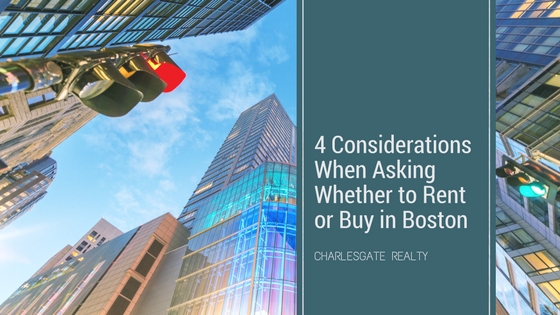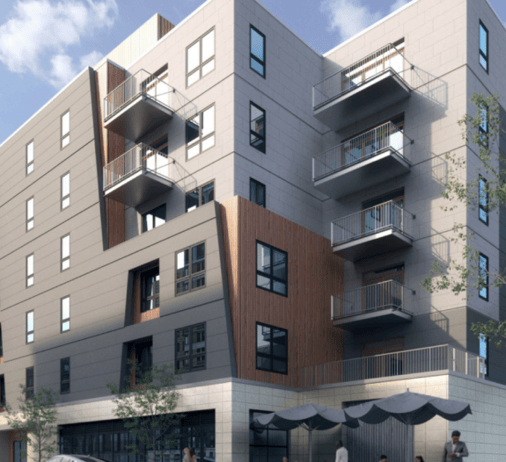4 Considerations When Asking Whether to Rent or Buy in Boston
Getting tired of hearing your neighbors through the walls? Craving some additional storage space? At some point, nearly all renters begin to ponder what life could be like without a lease, but renting has its perks as well. If you’re struggling to decide, use these key points to make up your mind.
Cost
In 42 states — including Massachusetts — buying beats renting in terms of your monthly cost. (Yes, that includes mortgage, taxes, and insurance.) For Bostonites, the cost issue is especially pertinent, because the city consistently ranks as one of the most expensive cities in the country for renters. However, with median home prices hovering above the $400,000 mark, coming up with that initial 20% downpayment — to the tune of $80,000 — is a formidable hurdle to owning. Still, if you can hack it, and you plan to stay put for a few years, it would be an investment that would allow you to reap equity from your monthly housing payment in years to come.
Maintenance
This cost for owners is twofold: time and money. But the return on your investment is a comfortable, attractive, and well-maintained home. Renters, on the other hand, are tasked only with typical cleaning, light bulb replacement, and other light maintenance, leaving the heavy lifting to the landlords. Then again, haven’t you always wanted to learn how to refinish wood floors? If you do decide to own, Boston has several local programs to lend a hand to homeowners, from interest-free loans to home repair workshops.
Space
Typically, home ownership means more space, too, with a garage, a basement, and an attic for added storage, plus the recreational and aesthetic benefit of a front- or backyard. This is especially true for Boston, where the U.S. Census American Housing Survey estimates that the median size of a renter-occupied unit is just 900 square feet, but the average owner-occupied unit is exactly double: 1,800 square feet. It should also cause no surprise that homes also more typically came with parking, as compared with apartments. That said, Boston is more of a walker’s town, anyway…
Location
…which brings us to the next deciding factor: location. Whether you’ll be buying or renting will depend heavily on exactly where in the city you’d like to be. As in most cities, if you want to be right downtown, renting will be your best option. The same goes for neighborhoods like Fenway, Mission Hill, Cambridge, East Boston, and the North and South Ends, reported by Boston Magazine to be the city’s best places for renters. First-time homeowners, on the other hand, tend to stay in Fenway, or gravitate toward Rosindale, Melrose, and Marshfield. Your real estate agent can help you sort through your options if you know where you want to live — or know what you want in a neighborhood — and are considering the homeowner plunge.
Haven’t made up your mind yet? Keep your options open, and speak with a real estate agent to find out exactly what it would cost you to own — and start building some equity. Compare rents in a few different neighborhoods, too, to make sure you get the best deal for your best place.
Sam Radbil is a contributing member of the marketing and communications team at ABODO, an online apartment marketplace. ABODO was founded in 2013 in Madison, Wisconsin. And in just three years, the company has grown to more than 30 employees, raised over $8M in outside funding and helps more than half a million renters find a new home each month.


